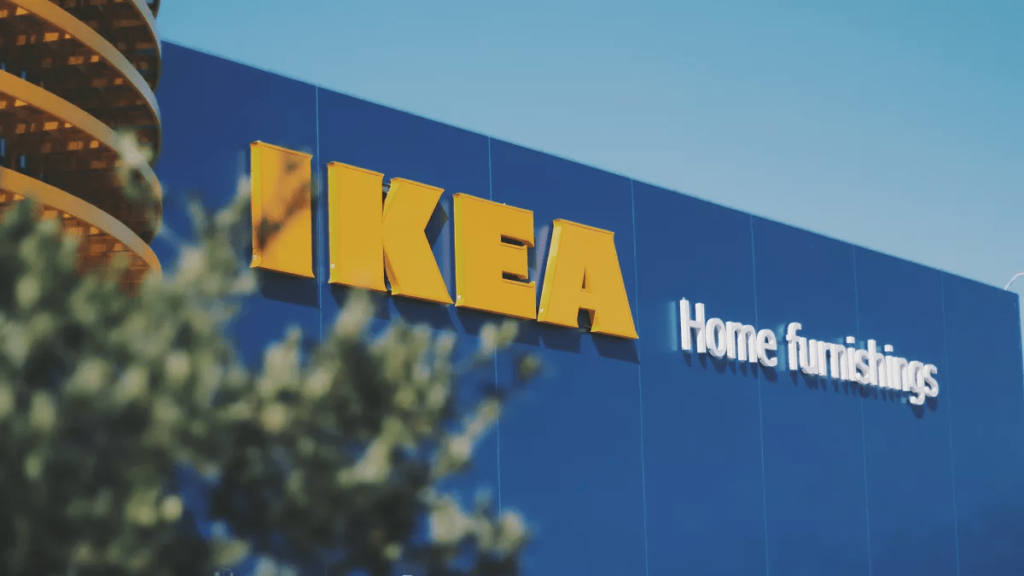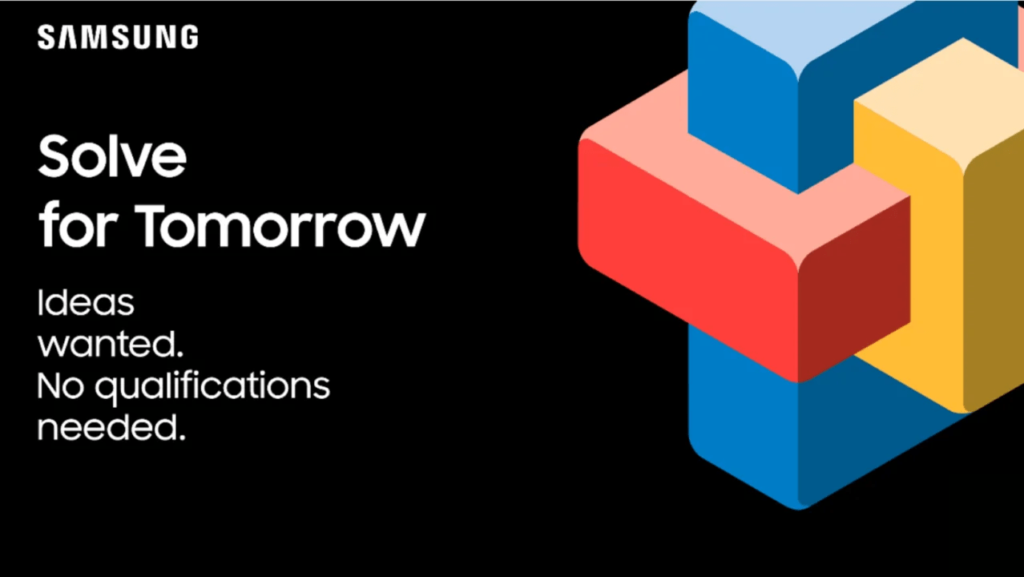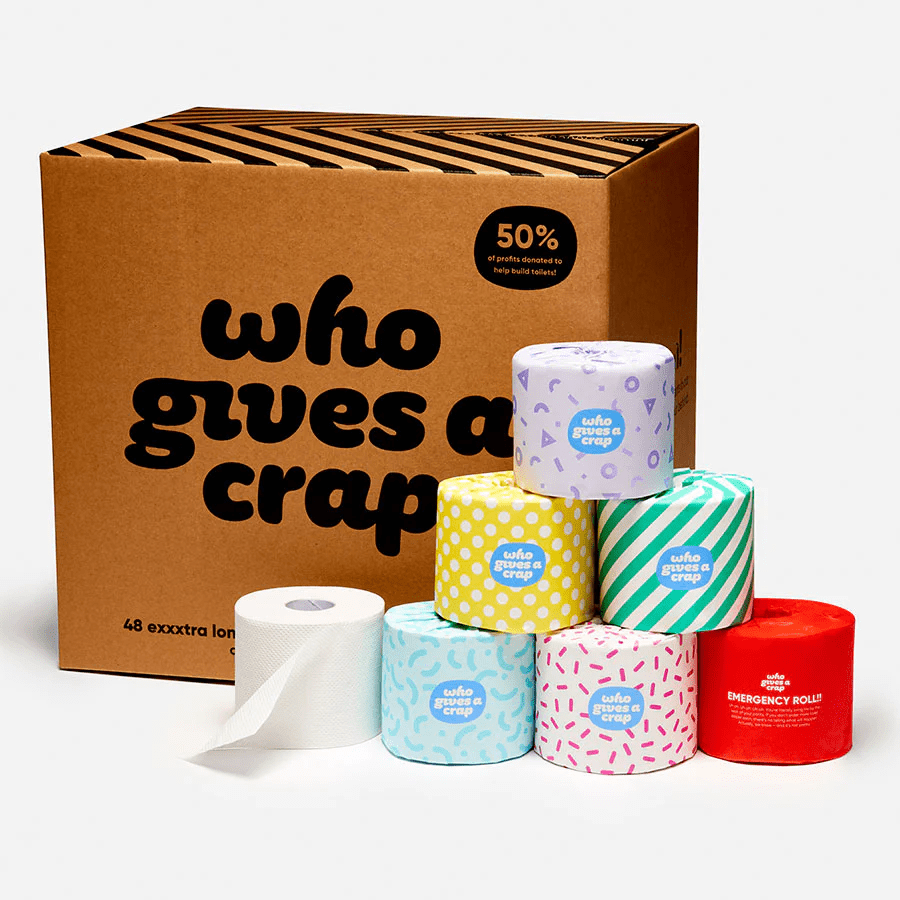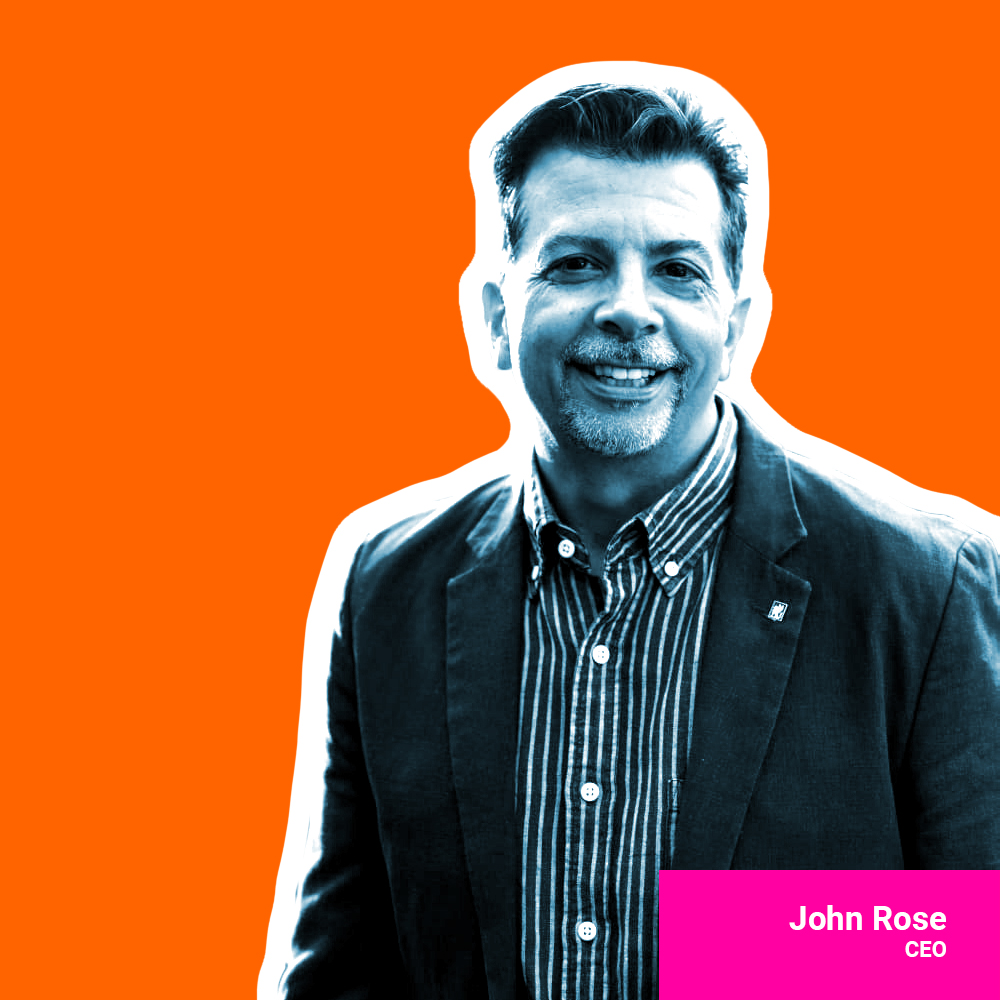
Gen Z’s CSR Revolution: Making Brands Walk the Talk
How History’s Most Influential Consumers Are Reshaping Corporate Values—And What Your Brand Must Do to Stay Relevant.
No generation has impacted corporate social responsibility (CSR) more than Gen Z. Born between 1997 and 2012, this socially conscious cohort is projected to contribute over $33 trillion to the global economy by 2030. But their influence extends far beyond their spending power. Gen Z’s expectations for transparency, ethical practices, and genuine brand purpose are more than just trends—they are demands that are reshaping the very foundation of how businesses operate.
One of the most significant aspects of Gen Z’s impact is their influence on the rest of the household. Even when they aren’t the primary buyers, their opinions often guide family purchasing decisions, particularly in categories like technology, fashion, and food. This ripple effect amplifies their economic power, making their values crucial not only for brands targeting youth markets but for those aiming to connect with broader demographics as well.
This generation is more likely than any before to hold companies accountable, reward those that align with their values, and call out those that fall short. Brands
must adapt or risk being left behind in a world where social and environmental responsibility are no longer optional.
Gen Z’s Demand for Authenticity and Transparency
Gen Z stands out as the generation that values authenticity and transparency above all else. Growing up in a digital world, Gen Z quickly spots inconsistencies between a brand’s words and actions. They expect companies to commit to CSR in a way that is transparent, measurable, and ingrained in the brand’s core values.
According to the Edelman Trust Barometer, 72% of Gen Z actively research a brand’s CSR practices before making a purchase. This heightened awareness means that brands must provide clear and honest information about their efforts to avoid losing this critical demographic.
Patagonia exemplifies how authenticity in CSR bonds with Gen Z. This outdoor apparel company has long been committed to environmental sustainability, not just as a marketing ploy but as a fundamental part of its business model. Patagonia’s willingness to take bold stances—such as suing the U.S. government over public lands protection—resonates deeply with Gen Z’s values. Their transparency in reporting on their environmental impact, both the successes and the areas where they fall short, builds trust and loyalty among Gen Z consumers who are looking for brands that practice what they preach. Patagonia’s revenue hit $1 billion, demonstrating that authenticity and activism can drive substantial financial success.
Allbirds, a New Zealand-based footwear brand, has successfully tapped into Gen Z’s desire for transparency. Allbirds has made sustainability a cornerstone of its brand, and they back this up by openly sharing their carbon footprint for each product and providing detailed information on the materials they use. This level of transparency is precisely what Gen Z is looking for—clear, quantifiable evidence that a brand is genuinely committed to making a positive impact. For marketers, the lesson from Allbirds is clear: transparency isn’t just a buzzword; it’s a vital strategy for building trust and long-term loyalty with Gen Z.
Another example is IKEA, which has made significant strides in sustainability by committing to become a fully circular business by 2030. The company’s efforts include creating products that can be recycled, refurbished, or reused, and providing transparency in how they achieve these goals. IKEA’s transparency in their circular design and sourcing efforts has resonated with Gen Z consumers, who prioritize environmental sustainability in their purchasing decisions.
For marketers, the demand for authenticity and transparency from Gen Z is a call to action. This generation isn’t just looking for brands that talk about doing good; they want proof. Brands that fail to be transparent in their CSR efforts risk being labeled as inauthentic, which can lead to a loss of trust and loyalty. On the other hand, brands that embrace transparency—by openly sharing their goals, challenges, and progress—can build strong, lasting relationships with Gen Z consumers. This approach not only aligns with Gen Z’s values but also sets the foundation for a brand’s long-term success as this generation’s economic power continues to grow.

The Need for Purpose-Driven Brands
As Gen Z continues to mature into a dominant economic force, their expectations for brands are clear: they want to support companies that stand for something beyond just profit. Gen Z is uniquely motivated by purpose, expecting brands to reflect their values and contribute positively to society. For marketers, this presents both a challenge and an opportunity—aligning your brand with a clear, authentic purpose can lead to deep loyalty and significant market share among Gen Z.
According to a study by Cone Communications, 77% of Gen Z consumers say they are more likely to purchase from a brand that supports a cause they care about. This finding is backed by research from Edelman, which shows that 73% of Gen Z believes that companies must act to address social and environmental issues, or they will lose their trust. For marketers, this underscores the importance of clearly communicating your brand’s purpose and ensuring it resonates with Gen Z’s values.
Nike’s decision to align itself with social justice issues, most notably through its campaign featuring Colin Kaepernick, the former NFL quarterback who became a prominent social justice activist after kneeling during the national anthem to protest racial injustice and police brutality, is a prime example of how taking a stand can resonate with Gen Z. Despite initial backlash, the campaign led to a 31% increase in online sales shortly after its launch, demonstrating the power of purpose-driven marketing. Gen Z’s response to the campaign was overwhelmingly positive, with a survey by YPulse revealing that 70% of Gen Z appreciated Nike’s stance on social issues, reinforcing the idea that this generation values brands that are willing to take risks to stand up for their beliefs.

In a more recent example, REI, the outdoor gear and apparel retailer, has consistently emphasized its purpose-driven mission by encouraging people to spend more time outdoors and by closing its stores on Black Friday as part of its #OptOutside campaign. This initiative has struck a chord with Gen Z, who appreciate REI’s commitment to a cause beyond profit. The campaign has not only driven consumer engagement but has also solidified REI’s reputation as a purpose-driven brand.
Who Gives A Crap, an Australian eco-friendly toilet paper company, exemplifies how purpose can drive brand loyalty even in the most unexpected product categories. The company donates 50% of its profits to building toilets in developing countries, a cause that has resonated strongly with Gen Z consumers who are increasingly focused on global social justice issues. A survey by Hotwire found that 47% of Gen Z have boycotted brands that don’t align with their values, further illustrating the importance of purpose in driving consumer behavior. Who Gives A Crap’s clear, impactful mission has not only garnered customer loyalty but has also helped the brand achieve substantial growth, with over $10 million donated to date.
Purpose-driven brands are not just winning over consumers; they are also outperforming their competitors financially. Brands that are perceived as purpose-driven have been shown to grow at twice the rate of their competitors, illustrating the tangible financial benefits of aligning with consumer values. For marketers, integrating purpose into your brand strategy is not just ethical—it’s smart business.

Engagement in Activism and Advocacy
Gen Z is the most vocal and socially aware generation, using their platforms to push for change and expecting the same from the brands they support. For marketers, aligning with Gen Z’s passion for advocacy and taking a visible stance on issues is a crucial opportunity.
Research by DoSomething Strategic reveals that over 70% of Gen Z believe brands should take a stand on social issues. Furthermore, Edelman’s Trust Barometer indicates that 64% of Gen Z are more likely to trust brands that are transparent about their stance on social and political matters. This makes advocacy a vital component in building brand trust with this demographic. Brands that engage in advocacy can foster stronger, more authentic relationships with Gen Z, while those that avoid these conversations risk losing relevance.
Starbucks has been at the forefront of integrating social advocacy into its brand, from its commitment to racial equality and diversity to its efforts in sustainability. The company’s “Race Together” campaign, despite its mixed reception, was a bold move to encourage conversations about race. Starbucks has also committed to hiring 10,000 refugees globally and has taken strong stances on LGBTQ+ rights. Starbucks remains a favorite among young consumers who value brands that align with their beliefs.
In a more recent example, Patagonia has expanded its environmental activism by supporting grassroots organizations focused on environmental preservation. Through its Action Works platform, Patagonia connects individuals with environmental campaigns, providing them with the tools and resources to take action. This initiative resonates with Gen Z, who are particularly passionate about environmental issues and expect brands to take meaningful steps toward addressing these concerns.
Beyond Meat, the plant-based meat substitute company, has taken a strong stance on environmental sustainability by promoting the benefits of plant-based diets in reducing the environmental impact of meat production. Their advocacy for sustainable food practices has resonated with Gen Z, who are increasingly concerned about climate change and the impact of their dietary choices on the planet. Beyond Meat’s activism not only aligns with Gen Z’s values but also positions the brand as a leader in the plant-based food movement.
For Gen Z, activism is more than just a marketing strategy; it’s a reflection of a brand’s values and integrity. This generation expects brands to not only make statements but to back them up with meaningful actions that drive social and environmental change. Marketers who embrace this challenge and engage in authentic advocacy can build deeper connections with Gen Z, leading to enhanced brand loyalty and long-term success.
Demand for Diversity and Inclusion
Diversity and inclusion are non-negotiable for Gen Z, who prioritize representation and equity. For them, brands that do not actively promote and embody diversity are not just outdated—they’re irrelevant. Gen Z’s expectations for inclusivity are reshaping how companies approach everything from product development to marketing, and the implications are significant for brands seeking to remain competitive.
A study by McKinsey & Company found that 67% of Gen Z considers diversity an important factor when making purchasing decisions. This generation is more likely than any before to choose brands that reflect their values of inclusivity. Furthermore, 76% of Gen Z said they want brands to promote gender equality in their advertising. These statistics underscore the necessity for brands to prioritize diversity and inclusion not only in their marketing but across all aspects of their business.
Adidas has made significant strides in promoting diversity and inclusion, particularly through its “Impossible is Nothing” campaign, which celebrates athletes from diverse backgrounds and promotes messages of equality and empowerment. Adidas has also launched collections designed specifically for diverse body types, genders, and abilities, ensuring that inclusivity is at the forefront of its product development.
According to a report by the National Retail Federation, 55% of Gen Z prefer brands that tailor their products to diverse needs. Adidas’ commitment to inclusivity has helped it connect with Gen Z consumers who value brands that embrace diversity in all forms.
Fenty Beauty, launched by Rihanna, revolutionized the beauty industry by offering a foundation line with 50 shades, catering to a wide range of skin tones that were previously underserved. This move not only set a new industry standard but also resonated deeply with Gen Z, who prioritize inclusivity and representation in their beauty products. In its first month alone, Fenty Beauty generated $72 million in earned media value, largely due to its inclusive approach. This success demonstrates that when brands prioritize diversity, they can capture the loyalty of Gen Z, who expect representation in the products they purchase.
Microsoft has been a leader in promoting accessibility and inclusion through its product offerings and corporate initiatives. The company’s Adaptive Controller for Xbox, designed for gamers with limited mobility, is a prime example of how Microsoft is addressing the diverse needs of its customers. Microsoft’s commitment to inclusion extends beyond products; the company has also been recognized for its efforts to create an inclusive workplace, earning a perfect score on the Human Rights Campaign’s Corporate Equality Index. A study by Accenture found that 62% of Gen Z want brands to promote accessibility and inclusivity, highlighting the importance of Microsoft’s initiatives in resonating with this generation.
Savage X Fenty, another brand by Rihanna, has redefined the lingerie market by offering a wide range of sizes and showcasing models of all shapes, sizes, and ethnicities in its campaigns. The brand’s inclusive approach has resonated with Gen Z consumers who demand representation in fashion. A survey by YPulse revealed that 71% of Gen Z are more likely to support brands that demonstrate inclusivity in their advertising and product offerings. Savage X Fenty’s success, with sales surpassing $150 million in its first year, underscores the financial benefits of embracing diversity and inclusion as core brand values.
While the benefits of prioritizing diversity and inclusion are clear, the risks of neglecting these values are equally significant. A report by PwC found that 41% of Gen Z consumers have boycotted a brand that did not align with their values on diversity and inclusion. This generation is quick to call out brands that fail to represent them, and they are not afraid to take their business elsewhere. For marketers, this means that diversity and inclusion cannot be an afterthought—they must be integral to every aspect of the brand’s strategy.
This generation expects brands to reflect the world they live in, which is diverse and multifaceted. Marketers who fail to prioritize inclusivity risk alienating a significant portion of the market. On the other hand, those who successfully integrate diversity and inclusion into their brand DNA can build stronger, more meaningful connections with Gen Z, leading to increased loyalty and long-term success.
Expectation of Long-Term Commitment
Gen Z is not easily swayed by short-term initiatives or one-off campaigns. They expect long-term commitments to social and environmental causes as a reflection of a brand’s authenticity. For this generation, it’s not enough to launch a campaign; they want to see continuous progress, transparency, and accountability over time.
According to a study by Edelman, 55% of Gen Z are more likely to trust a brand that demonstrates a long-term commitment to social and environmental issues. This trust is crucial for building lasting relationships with Gen Z consumers, who are skeptical of brands that only engage in CSR during moments of crisis or as a response to public pressure. For marketers, this means that CSR strategies should be designed with longevity in mind, incorporating measurable goals and regular updates to keep Gen Z engaged and informed.
IKEA has made sustainability a core part of its business model, with long-term goals that include becoming a fully circular business by 2030. This commitment involves using only renewable and recycled materials in its products and creating furniture that can be reused, refurbished, or recycled. IKEA’s ongoing sustainability initiatives resonate with Gen Z, who prioritize brands that take proactive steps to protect the environment. A report by Deloitte found that 64% of Gen Z are willing to pay more for sustainable products, highlighting the financial benefits of IKEA’s long-term commitment to sustainability.
Unilever’s Sustainable Living Plan is another prime example of how a long-term commitment to sustainability can drive business success. The plan includes ambitious goals such as reducing the environmental impact of its products and improving the health and well-being of a billion people. Unilever’s sustainable brands have been growing at twice the rate of the rest of its portfolio, illustrating that integrating sustainability into core business strategy resonates with Gen Z and contributes to long-term growth.
Tesla’s mission to accelerate the world’s transition to sustainable energy is a long-term commitment that resonates deeply with Gen Z. Tesla’s investments in electric vehicles, solar energy, and battery technology are not just about short-term profits; they reflect a broader vision for a sustainable future. A study by Pew Research found that 56% of Gen Z believe climate change is the most important issue facing society, making Tesla’s long-term focus on clean energy particularly appealing to this generation. Tesla’s success, with its market value surpassing $1 trillion, demonstrates the potential of aligning with Gen Z’s demand for long-term sustainability.
For Gen Z, long-term commitment is a measure of a brand’s integrity and seriousness about making a positive impact. This generation is highly attuned to issues of social and environmental justice, and they expect brands to be equally committed. Marketers who develop and communicate long-term CSR strategies will not only gain the trust of Gen Z but will also position their brands for sustained success in a market that increasingly values responsibility and accountability.
Integration of Technology and Innovation in CSR
Gen Z is the first generation of true digital natives, and their expectations for technology-driven solutions extend to the realm of corporate social responsibility (CSR). They expect brands to leverage technology to solve social and environmental challenges. For marketers, integrating technology into CSR efforts is key to capturing the attention and loyalty of this tech-savvy generation.
A Deloitte survey found that 72% of Gen Z are more likely to engage with brands that use technology to address social and environmental issues. This highlights the importance of integrating technology into CSR strategies, not only to enhance the effectiveness of these initiatives but also to meet Gen Z’s expectations for innovation and progress. Brands that successfully combine technology with CSR can differentiate themselves in a competitive market and build stronger connections with Gen Z

Apple has long been a leader in using technology to drive sustainability. The company’s commitment to becoming carbon-neutral across its entire supply chain by 2030 is backed by significant investments in renewable energy and recycling technology. Apple’s recycling program, which includes the development of robots that disassemble iPhones to recover valuable materials, is an example of how technology can be harnessed for environmental stewardship. Gen Z, who are particularly concerned about the environmental impact of the products they use, view Apple’s tech-driven approach to sustainability as both innovative and responsible. According to a report by the National Retail Federation, 54% of Gen Z are more likely to support brands that prioritize sustainability in their product design.
Google has been at the forefront of using artificial intelligence (AI) to address global challenges. The company’s “AI for Social Good” initiative applies AI technology to areas such as healthcare, disaster response, and environmental protection. For instance, Google’s AI technology is being used to predict floods and track endangered species, demonstrating the potential of AI to create positive social impact. A survey by Accenture found that 60% of Gen Z believe AI and other advanced technologies can help solve some of the world’s biggest challenges. Google’s integration of AI into its CSR efforts aligns with Gen Z’s belief in the power of technology to drive social change.
Nike has embraced innovation in its sustainability efforts by developing new materials that reduce environmental impact. The company’s “Move to Zero” initiative aims to achieve zero carbon and zero waste, with a focus on using recycled materials in its products. For example, Nike’s “Space Hippie” shoes are made from 90% recycled content, including factory scraps and plastic bottles. This commitment to using innovative materials not only reduces Nike’s environmental footprint but also appeals to Gen Z consumers who prioritize sustainability. According to a study by Hotwire, 47% of Gen Z have boycotted brands that do not align with their values on sustainability, making Nike’s tech-driven approach to CSR particularly relevant.
Samsung’s “Solve for Tomorrow” program is an educational initiative that encourages students to use technology to address societal challenges in their communities. The program has reached over 1.8 million students globally, empowering the next generation to use technology for social good. Samsung’s commitment to using technology to empower communities resonates with Gen Z, who value education and innovation as tools for social change. A survey by Kantar found that 68% of Gen Z believe brands should help educate people about important social issues, making Samsung’s approach to CSR particularly impactful.
For Gen Z, technology is not just a tool for convenience; it’s a means of driving meaningful change. This generation expects brands to use their technological capabilities to address the pressing social and environmental issues of our time. Marketers who integrate technology into their CSR strategies can engage Gen Z in ways that are both innovative and impactful, ultimately building stronger brand loyalty and positioning their brands as leaders in social responsibility.
Why Brands Must Care About Gen Z’s Take on CSR
As the largest and most diverse generation, Gen Z is reshaping how brands approach CSR. Their expectations for authenticity, transparency, inclusivity, long-term commitment, and the integration of technology into CSR efforts are not just preferences—they are demands. Brands that fail to meet these expectations risk losing relevance and market share, while those that align with Gen Z’s values have the opportunity to build deep, lasting connections with this influential generation.
Gen Z’s influence extends beyond their direct purchasing power. Their impact on family decision-making, their role as trendsetters, and their active presence on social media amplify their voice in the marketplace. As they continue to mature into their economic power, their expectations will increasingly shape the strategies of brands across all industries.
For marketers, understanding and embracing Gen Z’s take on CSR is not just a strategic advantage—it’s a necessity. Brands that commit to authentic, long-term CSR initiatives, leverage technology for social good, and prioritize diversity and inclusion will not only capture the loyalty of Gen Z but also position themselves as leaders in a rapidly evolving market.



